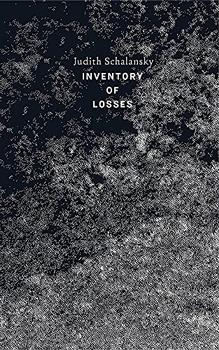Summary | Excerpt | Reviews | Beyond the Book | Readalikes | Genres & Themes | Author Bio

At the edge of the city the watercourse forks. I follow the most inconspicuous of its branches, the stream hidden deep in the scruffy field margin and lined with crack willow. The trees rise up out of the karstic brushwood like bulky beings moored upside-down to the undercut riverbank, their crowns pollarded, their branches stunted, hollowed out by wind and weather. Rotting wood bulges from their burst insides.
Soon the footpath crosses a water channel which, on the map, now bears the name of the river of my quest. Uncurving, it heads east, breaks loose from its surroundings, a natural boundary between two paddocks, hemmed in by willow fences. Lying on the meagre soil of the riverbank are blades of sedge beaten flat by the rain. Silently the water follows the course designed for it, fed by more and more drainage ditches branching off to the north and south. The open countryside lies there frigid. Everything is remote, the land occupied, cultivated, providing pasture for cattle still crowded in their sheds. Only the wind rages, whipping my breath away, stormily impeding my steps. The sky is clustered with bulging clouds. The hum of traffic is audible from somewhere near or far.
It is a while before anything catches the eye again. Dogwood and blackthorn bushes enclose the fields and provide shelter from the harsh north-easterly. A flock of greyish brown, blackbird-sized birds swoops over the fields, repeatedly touching down en masse to rest, and taking to the air again at the slightest disturbance. They are fieldfares, the grey-speckled thrushes that feature in the cookbooks of bygone days, which overwinter in the Mediterranean. Yellowhammers, too, soon appear as dabs of broom-yellow in the gusty air. Imperceptibly the ditch grows fuller, the water level rises, the channel broadens out, the rippling water flowing through the open shutter of a mechanical weir.
When, after a time, a road approaches and crosses the ditch, the smooth, tin-grey asphalt is alien to me. Cars zoom past. To the north, shiny concrete-grey barns, bilious green silos and a grayish white pyramid of cellophane-wrapped bales of straw are visible through a row of poplars. From somewhere comes the drone of farm machinery. Solitary flakes of snow dance noiselessly above the boggy ground of the yellowed pastureland.
In the grass of the riverbank I find a brown-grained river mussel, as large as a chicken's egg. Its inner surface shimmers in shades of mother-of-pearl. Not far off, some mallard ducks are dabbling in the water. They fly away with an irritable whining and flapping as I approach, more easily startled than their town-dwelling cousins, and gather on the nearby fallow field. Their webbed feet show up in shades of orange and the heads of the drakes shimmer peacock-blue against the grey expanse of the field. After the monochromy of the last few hours, the birds' bright coloring appears almost exotic.
Then I arrive at the place I had picked as the end point of my first leg. The little village of Wüst Eldena consists of not much more than a restored manor house and a row of brick-brown farmworkers' cottages. Apart from a dilapidated fire station and a few tumbledown barns, all the buildings look lived in: there are curtains hanging in the windows, cars standing on the driveways, and chickens strutting along by the fence surrounding their run. Neglect pervades the place. Its name is an empty claim. It refers to the Cistercian monastery at the mouth of the Ryck, Greifswald's ancient founding building, which has been languishing in a state of ruin since the Thirty Years' War.
My mobile telephone has reception again. I dial the number, and just as the taxi appears at the end of the lane, snow begins to fall steadily from the sky in big thick flakes.
Excerpted from An Inventory of Losses, copyright © 2018 by Judith Schalansky, translation copyright © 2019 by Jackie Smith. First published as Verzeichnis einiger Verluste by Suhrkamp Verlag, Berlin. Reprinted by permission of New Directions Publishing Corp.
Wisdom is the reward you get for a lifetime of listening when you'd rather have been talking
Click Here to find out who said this, as well as discovering other famous literary quotes!
Your guide toexceptional books
BookBrowse seeks out and recommends the best in contemporary fiction and nonfiction—books that not only engage and entertain but also deepen our understanding of ourselves and the world around us.